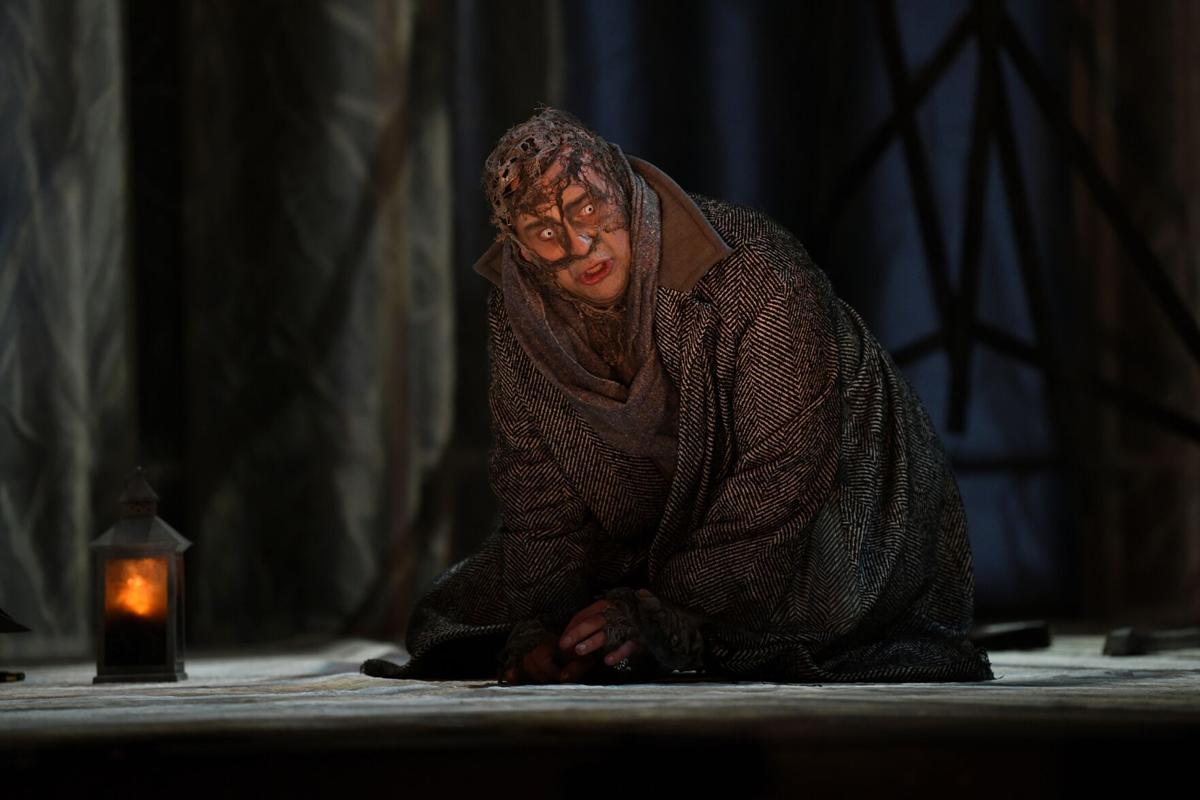Gregg Kallor‘s “Frankenstein” is the very definition of what modern-day opera should aspire to be.
A timeless tale well told, wrapped in a hauntingly beautiful score and performed by a supremely talented cast of singers like the one we saw on the Temple of Music and Art stage Saturday, Oct. 21, when Arizona Opera performed the work’s world premiere.
Kallor based the opera on Mary Shelley’s 200-year-old sci-fi novel, but traded the blood and gore for a deep dive into the consequences of isolation and abandonment, laced with a cautionary tale about the dangers of technology.
That point hits home in the opening scene where the Creature (baritone Edward Parks) stumbles onto the stage as his creator Victor Frankenstein (tenor Terrence Chin-Loy) frets in that “what have I done” way.
Kallor, who composed the score and wrote the libretto, casts both characters as victims and monsters in a story that is largely true to Shelley’s gothic novel.
Victor Frankenstein creates a sapien being in his laboratory then abandons it when it takes its first breath. The Creature is left to find his own way in the world, searching for his creator as strangers beat and ridicule him.
After a chance encounter in the forest with Frankenstein’s little brother (sung by 11-year-old Armand Delgado), the Creature kills the boy after he calls him a monster.
The Creature then becomes the monster that the boy and everyone he encounters has labeled him, setting out to find Frankenstein and seek revenge and retribution by having the scientist create a female creature he can love.
We sympathize with Parks as Frankenstein abandons him and he is thrust, limping and stumbling, into a world where he is beaten and ridiculed by strangers. But once he kills the boy and becomes the monster, we fear him, especially in the wedding night scene where the Creature kills Frankenstein’s bride (mezzo-soprano Katherine Beck) in front of him.
We also feel for Frankenstein, who spends his days skittishly looking over his shoulder, waiting for his creation to make good on his threat to be with him on his wedding night. But it’s hard to feel too sorry for him knowing that this is misery he brought upon himself with his ego and sense of superiority.
Parks delivered a prolonged standing-ovation worthy performance. He struck a commanding physical presence that made the Creature appear larger than the shadow he cast in Tláloc López-Watermann’s brilliantly dramatic stage lighting. His nuanced baritone was emotionally charged, vulnerable and sympathetic as he endured cruel abuses and forcefully dynamic as revenge fills his heart.
Chin-Loy, a former member of Arizona Opera’s Marion Roose Pullin Studio program, was a bundle of skittish nerves and deep regrets as Victor Frankenstein, with a soaring emotional tenor.
Sarah Ina Meyers minimalist vision for the production was brought to life with Bretta Gerecke’s evocative staging — just a table and chair and an easy chair set against marbled walls with hallways that served as exit ramps and catacombs. Motorized props created forest scenes and video projections against sheer curtains cast ghostlike shadows that added horror-movie ambience.
Conductor Clinton Smith led the Arizona Opera orchestra in a wonderful performance that brought out the lush beauty and somber eeriness of Kallor’s score.





